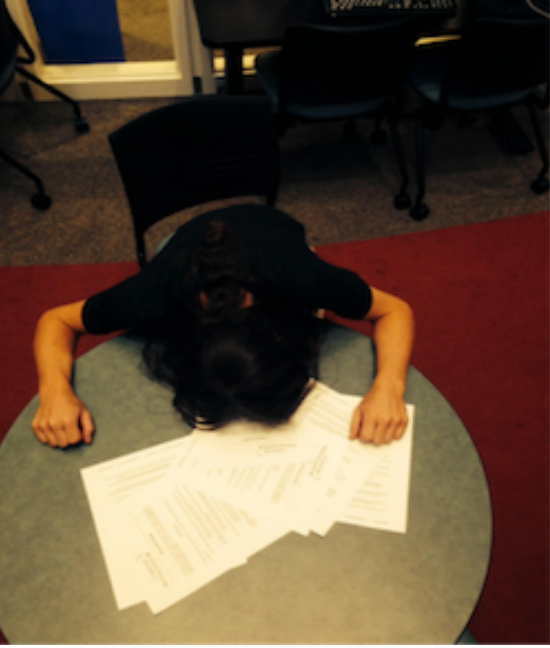by Bailey Faulkner
Summer classes here at ASU seem to come and go almost as fast as summer showers in Boone. It’s easy to feel overwhelmed when you leave school each day with a growing stack of assignment sheets in your folder and on your mind. Focusing on the details of an assignment sheet is especially important when taking any sort of writing class. Assignment sheets will be your guide through each writing assignment, so paying close attention to them before you begin writing is essential. Writing classes here at ASU also require you to compile a finalized portfolio, which often contains every writing assignment that you will complete during the entire course. This is also a great time to focus on assignment sheets. You may be asking, “How should I approach these assignment sheets?” Let’s talk about it.
Before Beginning the Assignment
Producing effective writing can be much easier if you form certain habits in the pre-writing stage. Our friends over at the UNC Chapel Hill Writing Center have identified two of the best habits that writers should develop when looking over assignment sheets.
- “Read the assignment carefully as soon as you receive it. Do not put this task off—reading the assignment at the beginning will save you time, stress, and problems later.”
- “Ask the instructor about anything you do not understand…Instructors would prefer to set you straight before you hand the paper in. That’s also when you will find their feedback most useful.”
Now that we’ve covered the two initial steps of understanding an assignment sheet, we can move on to some of the more specific phases in the process.
Don’t Overlook the Overview/Background Info
Usually, assignment sheets will open relatively broadly. Think of this as “setting the stage” for what you will actually write. Instructors commonly begin assignment sheets by referencing some sort of in-class discussion or material. By doing this, instructors prime the reader for the focused goal or objective that will usually come next.
An example of this overview or background info could look like this: “This week we have discussed ways in which the media influences the average citizen’s perspective on certain issues.”
Determine the Goal/Objective
Often, paying close attention to the assignment sheet’s use of verbs will clarify your overall goal or objective. Keep an eye out for verbs like analyze, assess, compare, evaluate, consider, reflect and other similar words. It’s also a good idea to focus on any sentences that use what, when, why, where, or how.
An example of the goal or objective of an assignment sheet could look like this: “Assess the pros and cons of increasing the number of parking meters in Boone.”
Consider the Suggestions, etc.
After stating the main goal, assignment sheets regularly offer some suggestions or comments. It is important to note that these suggestions are often just that—suggestions. Don’t think that you need to cover each of the broad topics or ideas in this section of the assignment sheet; these are just suggestions that give you an idea of what you should do with the assignment.
Look for Formatting Instructions
Formatting instructions usually appear at the end of the assignment sheet. Sometimes the instructions will be pretty straightforward and other times they will be a little hard to decipher, so you should talk to your instructor if you have any questions about the specifics of the assignment’s formatting. Also, the University Writing Center is an awesome place to visit if you’re stuck on this part (or any part of any piece of writing; we like to help out in any way we can!)
After Reading the Assignment Sheet
Here are a few things to ask yourself after reading the assignment sheet.
- Why did my instructor give this assignment? Contrary to popular belief, instructors don’t like giving out busy work. Each assignment is designed to help you develop a certain skill. Think about class discussions. This will help you determine this assignment’s type of “mental workout.”
- Who is the audience? This is one of the most important things to consider in any writing situation. Think about who the intended audience is and how you can adjust your writing to fit that particular audience.
- How can I make a sound argument? Once you figure out what direction you want to take, try to think about the most effective way of developing that argument. Consider each aspect of your argument and try to reason out the best way to sequentially organize each point of the argument.
Works Cited
- “Understanding Assignments.” The Writing Center. The University of North Carolina at Chapel Hill, 2014. Web. 17 June 2015.

